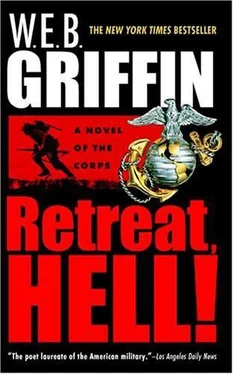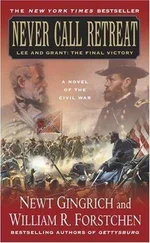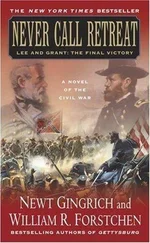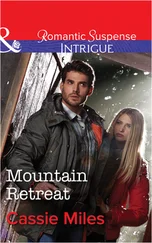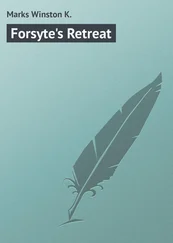McCoy and Zimmerman pulled chairs—one heavy and of carved wood matching the table, the other a GI folding metal chair—to the table and sat down.
"What's with the Coleman lantern?" McCoy asked by way of greeting. "I heard the generator. . . . The perimeter floodlights are working."
"No lightbulbs," Dunston replied. "I'm working on it. Probably tomorrow." He paused, then went on: "I was getting a little worried about you, Ken."
"We're all right," McCoy said. "But I'm hungry and thirsty."
"Hard or soft? There is also a case of Asahi cooling in the fridge."
"I think one medicinal belt, and then beer," McCoy said. "Food?"
"There's steaks and potatoes, no vegetables."
"Hot water?" Zimmerman asked.
Dunston nodded. "And your laundry awaits," he said.
"I'm going to have a beer, a shower, a drink, and a steak, in that order," Zimmerman said.
A door opened, and a middle-aged Korean woman stood in it waiting for orders.
Dunston, in Korean, told her to bring beer and whiskey and to prepare steaks.
"I think if you had found him, you'd have said something," Dunston said.
"Close, goddamn close, but no brass ring," McCoy said. "I wouldn't be surprised if he saw us looking for him."
"But you think he's alive?"
"I'm pretty sure he was alive six, eight, maybe twelve hours before we found his arrow."
"Did you tell the general?"
McCoy nodded.
"I sent a message through the 7th Division G-2," he said, "and sometime tonight, I want to get a message out to the Badoeng Strait."
The USS Badoeng Strait (CVE 116) was the aircraft carrier—a small one, dubbed a "Jeep Carrier"—from which Major Malcolm Pickering had taken off on his last flight. His wing commander, Lieutenant Colonel William "Billy" Dunn, USMC, was doing all he could to locate and rescue Pickering; McCoy wanted him to know what had happened on this last ground search mission.
"No problem," Dunston said.
"What's going on here?" McCoy asked.
"It says in here," Dunston said, dryly, tapping Stars and Stripes, "that Seoul has been liberated. I guess nobody told the artillery."
"I wondered what all that noise is," McCoy said. "But that's not what I meant. I got a message from Hart saying to be at Kimpo at 0900. What's that all about?"
"El Supremo's flying in. He's going to turn Seoul over to Syngman Rhee. I guess the general's coming with him."
El Supremo was General of the Army Douglas MacArthur, Supreme Commander, Allied Powers, and, since shortly after the Korean War began, Commander, United Nations Forces in Korea.
"They sent you a message?"
Dunston shook his head no.
"I'm a spy, Ken. I thought I told you. I've got a guy at Haneda. The Bataan’s being readied as we speak."
McCoy chuckled. Haneda was the airbase outside Tokyo where the Bataan, MacArthur's personal Douglas C-54 transport, was kept.
"I wish I had better news for the boss."
"That he's alive is good news."
"Yeah, and six hours after I tell him that, we'll find his body."
"The bastard walks through raindrops, Killer," Zimmerman said. "You know that."
"Where's General Howe? And did you tell him that MacArthur and the boss are coming?" McCoy asked.
Major General Ralph Howe, a World War I crony of then-Captain Harry S Truman, was in the Far East as the personal representative of the President of the United States and Commander-in-Chief of its Armed Forces.
"I got a message from him about six o'clock, saying he's with Chesty Puller's Marine regiment," Dunston said. "And no, I didn't tell him. (a) I figured they'd get word to him, and (b) I didn't want him to ask how come I knew."
The Korean woman came into the room carrying a tray. It held quart bottles of Asahi beer, a quart bottle of Famous Grouse scotch, and ice and glasses.
"Where'd you get all the booze?" Zimmerman asked.
"I paid a courtesy call on General Almond," Dunston said. "That general knows how to go to war. With a trailerload of hootch and cocktail snacks, and clean white sheets. Almond told his aide—Haig?—to take care of me."
"Why did Almond tell El Supremo Seoul's been liberated?" McCoy asked, indicating the pounding rumble of the heavy artillery with a finger pointed at the ceiling.
He reached for the bottle of whiskey and poured two inches in one of the glasses. Zimmerman picked up one of the beer bottles. Dunston slid him a bottle opener.
"I think it was the other way around," Dunston said. "And Almond is too smart to disagree with El Supremo. MacArthur said he wanted Seoul liberated within two weeks of the landing at Inchon, and by God, it has been liberated."
"We bagged a North Korean lieutenant colonel—" McCoy began.
"And his Russian jeep," Zimmerman interjected.
"And his jeep?" Dunston asked, smiling. "What are you going to do with that?"
Zimmerman opened the bottle, and then left the room, drinking from the bottle as he walked.
"—who I turned over to Paik Su," McCoy went on, "with instructions to put him in the basement, feed him, and make him comfortable. I think he's important. Probably an intelligence officer, maybe a political commissar, but somebody important. I think he should be interrogated by somebody besides Zimmerman and me—or, for that matter, you. This guy is not impressed by a couple of clowns riding around the boondocks in a jeep. But I think he might respond to somebody he thinks is important."
"Paik is very good at getting people to tell him things," Dunston said.
"And there is always thiopental sodium, but that also requires that the interrogator know what questions to ask. What we may get from this guy will be something—and I have a gut feeling there will be something—that he lets slip, not something Paik, or a needle in his arm, 'persuades' him to tell us."
"I know just the guy, an ROK bird colonel," Dunston said. "I'll handle it. Go get a shower and something to eat, Ken. You look beat."
"After I get a message off to the Badoeng Strait."
"I can do that, too, if you'd like," Dunston said.
"Thanks, Bill, but I'd rather do it myself," McCoy said.
He stood up and held the whiskey glass out. "And before I have another of these and go to sleep. I'm beat."
"You've been up since four, and I don't think you got much sleep last night,"
Dunston said. "Ken, if all you've got to tell Colonel Dunn is where Pickering was—or wasn't—I can use that overlay and send the message."
"I'd rather do it myself," McCoy said. "But for the second time, thanks, Bill."
He walked out of the library and climbed the stairs to the radio room on the third floor. Coleman lanterns were on each landing. The radio operator on duty was a not-unattractive Korean woman in her thirties. She sat at a table on which was an aluminum teapot on an electric stove, an ashtray, a typewriter, and a fully automatic M-2 .30-caliber carbine. The radio room had a lightbulb dangling naked from the ceiling.
McCoy nodded his head and said, "Di-San."
Possibly to restrain the romantic tendencies of McCoy's Marines, Dunston had told them that Di and her husband had been prewar employees, and that after torturing the husband for several hours, the North Koreans had finally killed him, then, after subjecting the woman to multiple rape, had for some reason let her go.
Her head barely moved in a nod acknowledging McCoy.
"I'll have a short message for the Badoeng Strait," McCoy said.
Her head bobbed almost imperceptibly again, and she turned to one of the radio sets and began to make the necessary adjustments.
McCoy took a map of Korea and a translucent overlay from a table drawer, put the overlay on the map, and made a pencil note of the coordinates on the overlay. Lieutenant Colonel Billy Dunn, on the aircraft carrier, had an identical overlay. Without the overlay, the coordinate keys would be useless.
Читать дальше
